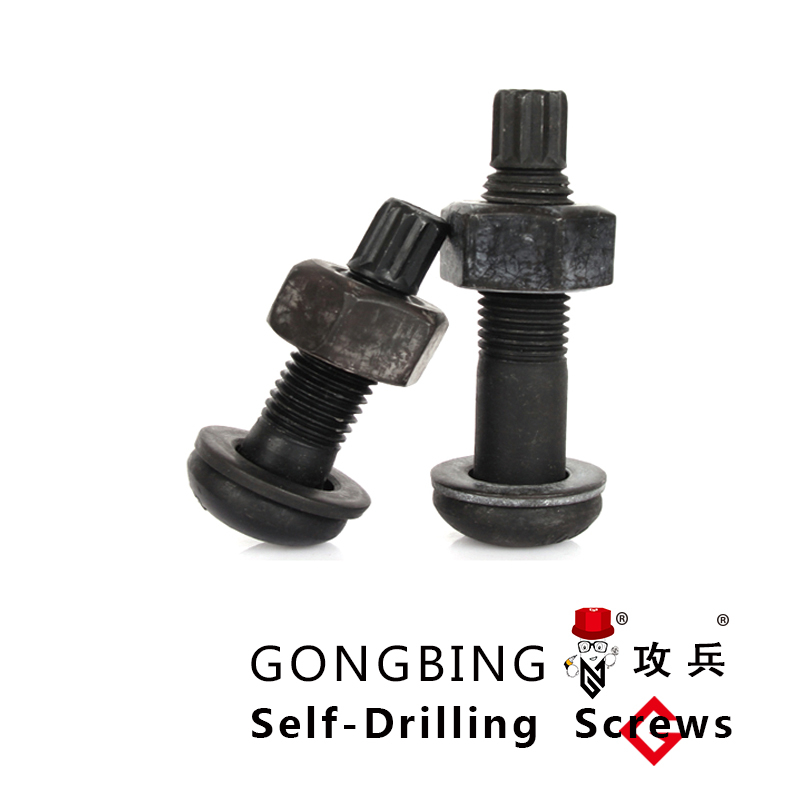foundation bolt m20
Understanding Foundation Bolt M20 Importance, Applications, and Specifications
Foundation bolts are a crucial component in construction and structural engineering, serving as the connection between structural elements and their underlying foundations. Among the various types of foundation bolts, the M20 foundation bolt is particularly notable due to its specific dimensions and applications. This article delves into the significance, applications, and specifications of the M20 foundation bolt.
What is an M20 Foundation Bolt?
The designation M20 refers to the metric size of the bolt, where M stands for metric and 20 indicates the nominal diameter of the bolt in millimeters. Therefore, an M20 foundation bolt has a diameter of 20 mm. Foundation bolts are typically used in conjunction with nuts and washers to anchor structures, machinery, or equipment securely to concrete bases or foundations.
Importance of Foundation Bolts
Foundation bolts are essential for ensuring the stability and integrity of structures. They provide a reliable method for anchoring various construction elements, including columns, beams, and machinery. The proper selection and installation of foundation bolts can significantly impact a structure's ability to withstand loads, resist shear forces, and endure environmental factors such as wind and seismic activity.
Using the M20 foundation bolt specifically allows for a balanced combination of strength and manageability. Their robust structure facilitates a secure fit, while their metric sizing allows for compatibility with a wide range of tools and specifications, making them a versatile choice for many projects.
Applications of M20 Foundation Bolts
M20 foundation bolts find applications in various fields, including
1. Civil Engineering In the construction of bridges, buildings, and other large structures, M20 bolts are used to anchor support columns and ensure structural stability.
foundation bolt m20

2. Industrial Machinery Many industrial machines require stable foundation support. M20 foundation bolts can be utilized to fasten machinery to concrete pads, preventing any movement during operation.
3. Wind Turbines In the renewable energy sector, M20 bolts are often used to secure wind turbine bases to concrete foundations, ensuring they can withstand the forces generated by strong winds.
4. Telecommunications Towers Similar to wind turbines, cell towers require strong anchoring to remain stable, especially in high-wind areas. M20 foundation bolts help maintain their integrity.
Specifications and Standards
When selecting M20 foundation bolts, it’s essential to consider several specifications
- Material M20 foundation bolts can be made from various materials, including carbon steel, stainless steel, and alloy steel. The choice of material depends on environmental conditions and load requirements.
- Grade The grade of the bolt indicates its strength. Common grades for M20 bolts include Grade 4.6, 8.8, and higher for applications requiring greater tensile strength.
- Coating Many foundation bolts are coated to enhance corrosion resistance. Common coatings include zinc plating, hot-dip galvanization, and epoxy coatings.
Conclusion
In summary, the M20 foundation bolt is a critical component in construction and engineering, providing structural integrity and reliability across various applications. Understanding its importance, applications, and specifications ensures that engineers and builders can make informed decisions, ultimately leading to safer and more durable structures. As construction standards evolve, the role of foundation bolts like the M20 will continue to be pivotal in shaping the built environment.
-
Weatherproof Plastic Expansion Anchors for OutdoorNewsJun.06,2025
-
Sustainability in the Supply Chain: Eco-Friendly TEK Screws ProductionNewsJun.06,2025
-
Load-Bearing Capacity of External Insulation FixingsNewsJun.06,2025
-
Double Head Bolts: Enhancing Efficiency in Industrial MachineryNewsJun.06,2025
-
Corrosion Resistance in Chipboard Screws: Coatings for Wholesale DurabilityNewsJun.06,2025
-
Butterfly Toggle Bolts : Enhancing Structural ResilienceNewsJun.06,2025
